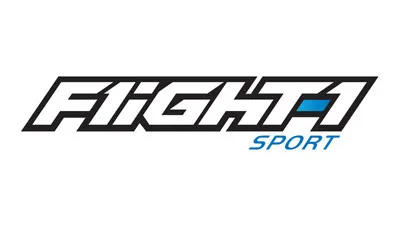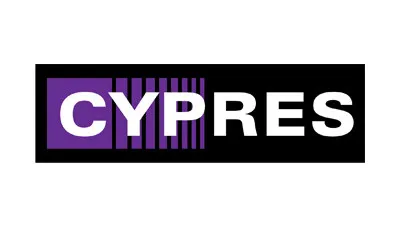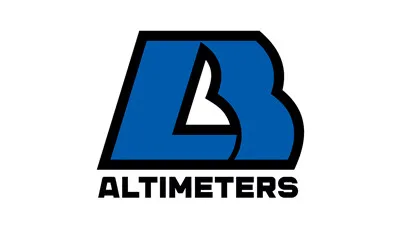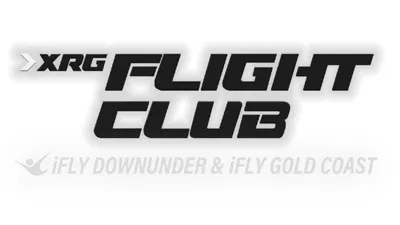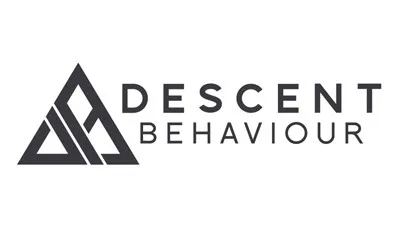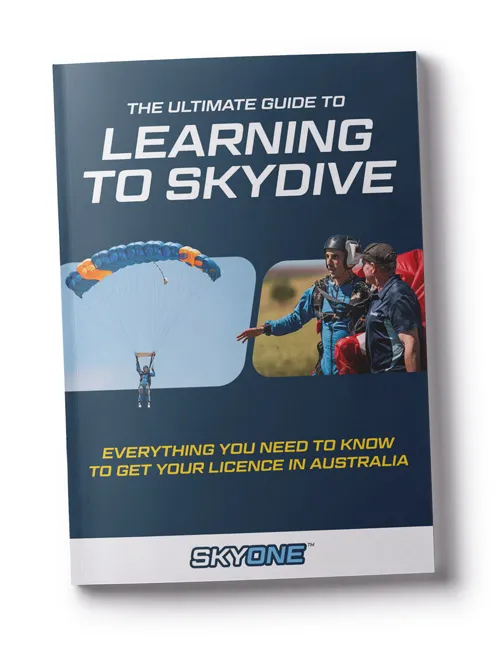There’s a group of people out there who already understand you. They know the thrill you’re seeking, the freedom you crave. They’re waiting to welcome you, to share in the indescribable joy of skydiving together. And it all begins with the AFF Course.
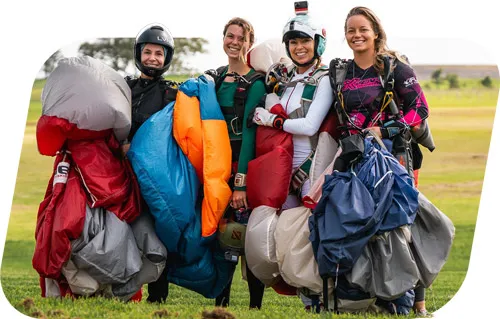
Warning: skydiving is highly addictive, it may lead to wild adventures and unstoppable personal growth.
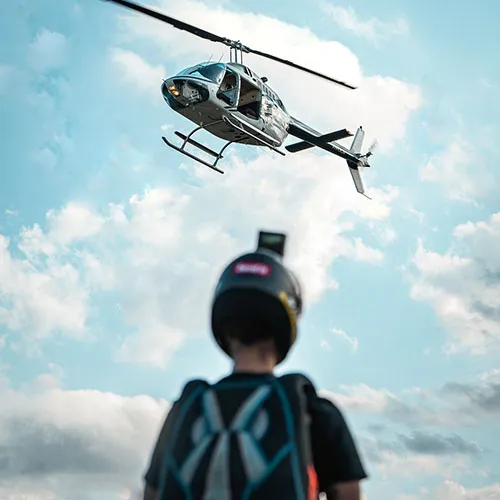
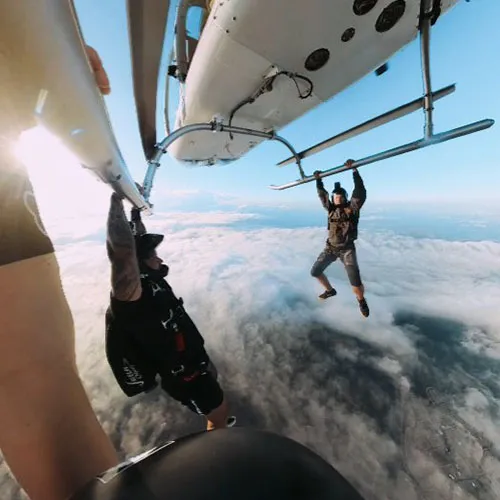
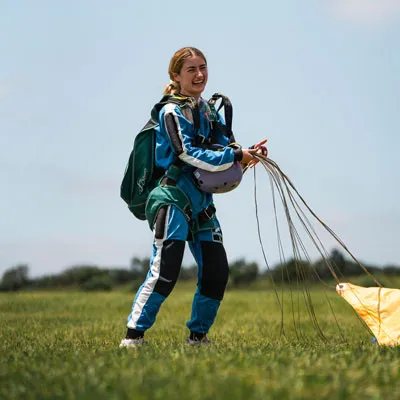
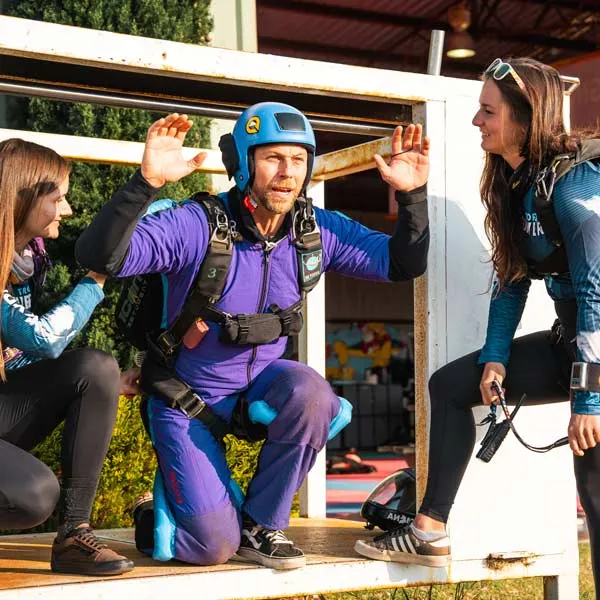
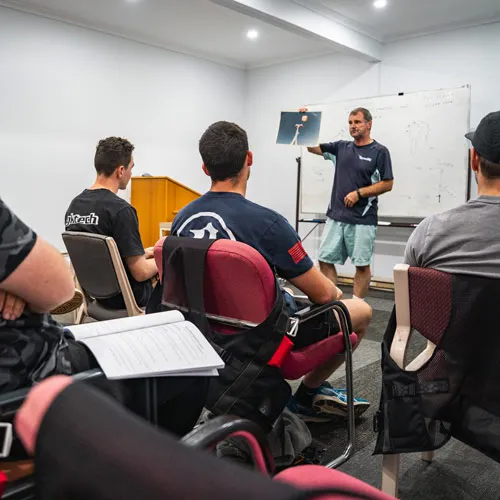
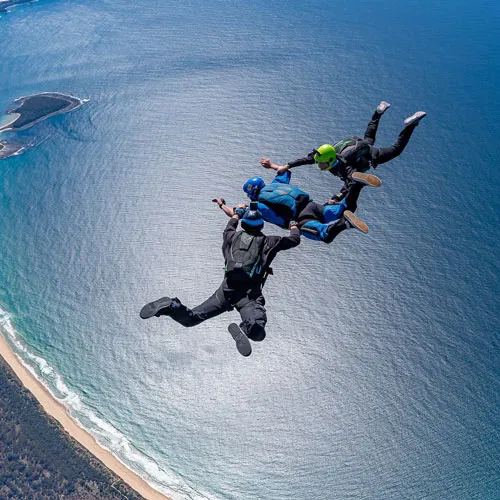
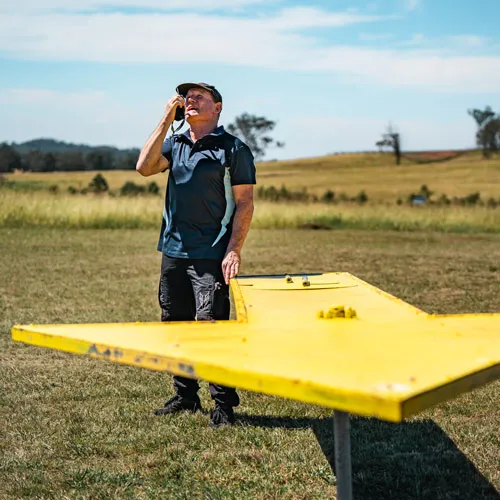
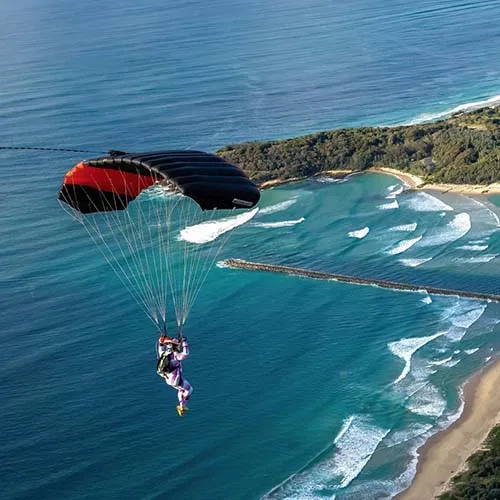
AFF Course Packages
- APF student membership
- Pre-course online training
- Full day ground training
- AFF Skydive 1
- All gear and training materials
- APF student membership
- Pre-course online training
- Full day ground training
- All 9 AFF Skydives
- All gear and training materials
- APF student membership
- Pre-course online training
- Full day ground training
- All 9 AFF Skydives
- 6 additional jumps with gear hire
- A Licence course and exam
- All gear and training materials
- APF student membership
- Pre-course online training
- Full day ground training
- All 9 AFF Skydives
- 12 additional jumps with gear hire (8 of which can be B-Rel coached)
- A Licence course and exam
- All gear and training materials
Who can learn to skydive
Almost any healthy adult without injuries can learn to skydive. There are some basic requirements for the AFF Course, set by the Australian Parachute Federation and gear manufacturers.
Age:
Must be at least 16 years old. All minors will need parental or guardian consent.
Weight:
110kg is the maximum weight allowed to learn to skydive in Australia.
Health:
Skydiving is not physically demanding, but students must be in good general health. Shoulder injuries or dislocations can be of concern.
Time:
Staying current is very important. We don’t recommend that AFF students and novice skydivers leave more than 2 weeks between jumps.
English:
AFF students must be able to read and speak English fluently to communicate successfully with instructors.
No previous skydiving experience is required. While recommended, a tandem skydive is not mandatory before enrolling in the AFF course.
AFF Course in Australia
The AFF (Accelerated Free Fall) course is the first step to obtaining your skydiving licence in Australia. It consists of a full-day ground course followed by 9 AFF skydives or stages. You can complete the course in just a few days or learn at your own pace, without leaving more than 1-2 weeks between jumps.
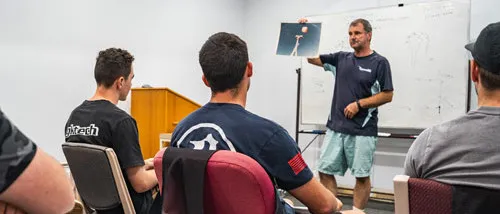
The AFF (Accelerated Free Fall) course is the first step to obtaining your skydiving licence in Australia. It consists of a full-day ground course followed by 9 AFF skydives or stages. You can complete the course in just a few days or learn at your own pace, without leaving more than 1-2 weeks between jumps.
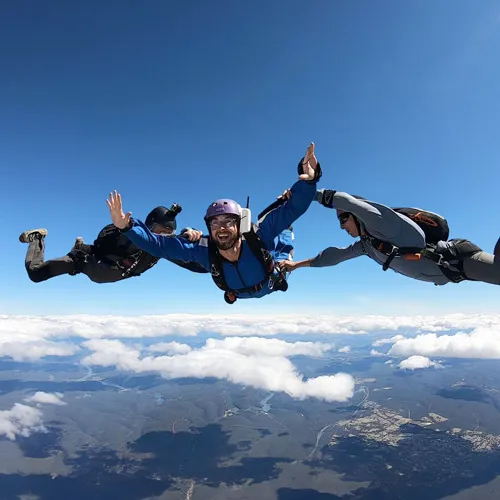
This is one to remember forever! Usually on the day following the ground course, you will do AFF Stage 1, assisted by 2 instructors in free fall, while wearing and flying your own parachute. You will have a briefing to recap on the theory of the ground course and a debrief to review your performance after the jump.
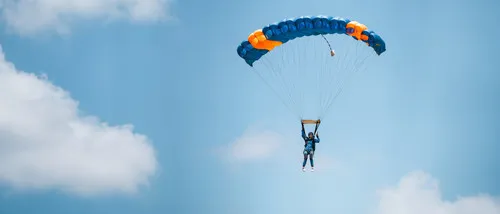
SKYONE is a member of the Australian Parachute Federation and the most experienced operator in the country. We were pioneers, introducing the AFF course in Australia over 30 years ago.
30+ years training skydivers in Australia
Experienced instructors and coaches in all disciplines
6 locations with AFF Course to Learn to Skydive
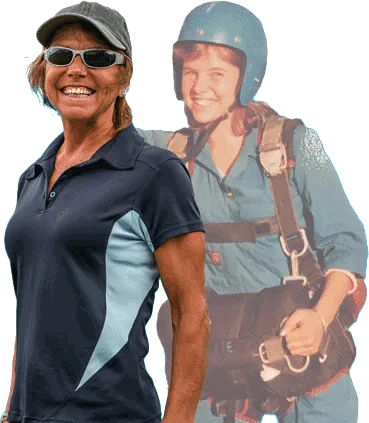

Sydney
Closest location to the CBD to learn to skydive in Sydney. We run AFF Ground Course and Stage 1 weekly (weather and numbers dependent)
745 Picton Rd, Wilton NSW 2571
Get Directions – 02 9791 9155
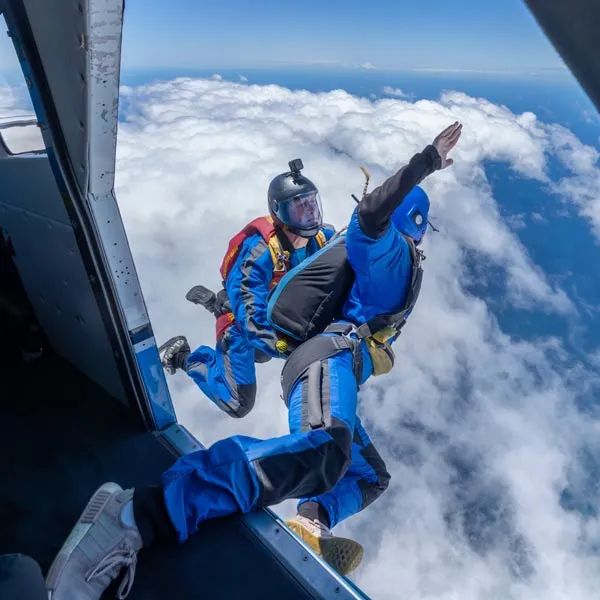
Arguably the best location to learn to skydive in NSW. Great facilities and accommodation on site, smash your AFF course in just a few days.
77 Bruce Cameron Drive, Moruya NSW 2537 Get Directions – 1300 185 180
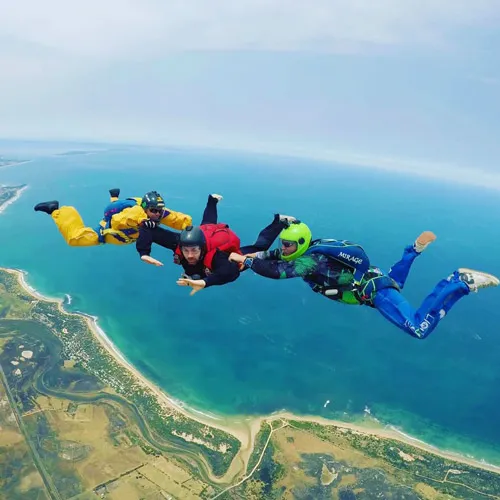
Get your skydive licence in Melbourne jumping over the Great Ocean Road with stunning views of the coastline. We have weekly courses (weather and numbers dependent)
745 Picton Rd, Wilton NSW 2571
Get Directions – 02 9791 9155
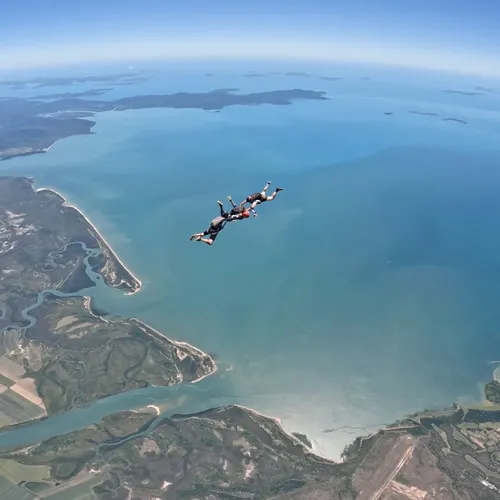
Learn to skydive in Airlie Beach, make it next level with our holiday package, which includes affordable accommodation close to the dropzone.
253 Kunapipi Road, Laguna Quays QLD 4800
Get Directions – 07 4838 4040
AFF Stage 1
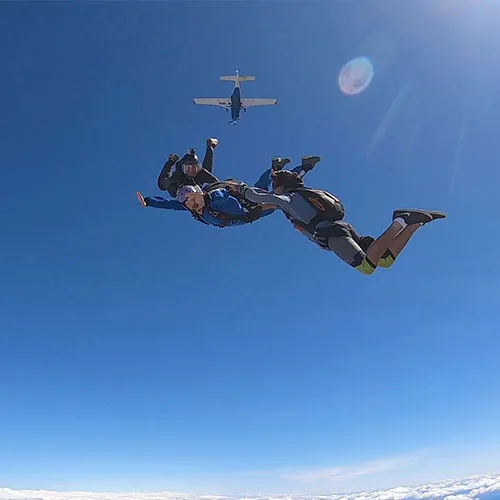
Just 1h from Newcastle, earn your skydive licence in the Hunter Valley. Vibrant atmosphere with fun jumpers awaits. We run AFF Stage 1 courses the first Saturday of each month.
690c Moores Ln, Elderslie NSW 2335
Get Directions – 1300 759 348
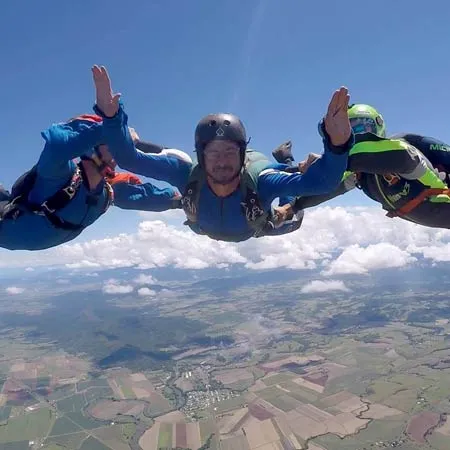
Looking to do the AFF Course in Cairns? Our dropzone in Innisfail is located just 1h south of Cairns with stunning views over tropical Far North Queensland.
30 Wilson Rd, Mundoo QLD 4860
Get Directions – 07 4015 2466
Frequent questions
What's the minimum age to learn to skydive in Australia?
16 years old is the minimum age to skydive in Australia. At SKYONE, we usually require students to be 18. For minors over 16 who are serious about the AFF course, we can discuss it with parents or guardians.
How long does it take to complete the AFF course?
You can finish in just a few days or weeks. We don’t recommend leaving more than 2 weeks between AFF stages.
Is learning to skydive safe?
We make learning to skydive as safe as possible. Our SKYONE instructors are qualified under the Australian Parachute Federation and highly experienced, with thousands of skydives each. During AFF training, you’ll learn the skills needed to skydive safely on your own.
Do I have to pay for the full AFF course upfront?
No, you can complete the AFF course and get your skydive license at your own pace. Pay-as-you-go is a good option if you’re unsure. However, an AFF package offers better value.
How many tandem skydives do I need to do before signing up to the AFF Course?
None. A tandem skydive can be helpful to know what to expect, but it’s not required before starting AFF Stage 1.
What is the total cost to obtain the A licence?
You need to complete AFF and a minimum of 10 witnessed landings meeting A licence accuracy requirements. This typically takes 15 to 25 jumps and costs about $3,199 to $4,000.
Do I need to buy my own gear after completing the AFF course?
Not immediately. You can buy jump tickets with gear hire while you save up for your first set. Your skydiving instructors can guide you through the process of choosing gear.
Can I fly a wingsuit after AFF?
Current APF rules require at least 200 jumps, a D license, and completing the wingsuit crest with a qualified coach. Some drop zones may have higher jump number requirements for wingsuit flying.
Is the Australian Skydive Licence valid if I travel overseas?
Yes, your APF license is valid in other countries. Remember that other federations like USPA or BPA may have different rules. You’ll need to buy temporary or visitor memberships before jumping abroad.
Can I jump with other licensed skydivers after the AFF Course?
Once you complete your B-rel table and get signed off by your Chief Instructor, you can do 4-ways with other licensed skydivers. The Star Crest program will prepare you for safely jumping with bigger groups. Learn more about the path after AFF
Can I wear an action camera to film my skydives after AFF?
You need at least 100 skydives and a C licence before you can be approved to wear a snag-free helmet-mounted camera. This is at the discretion of the Chief Instructor or DZSO.
Enrol in the AFF Course
Submit your no-commitment expression of interest and we will be in touch to discuss your goals and availability. Our instructors evaluate applications individually.
Skydive licences in Australia
After completing the AFF course you will have logged at least 9 skydives, still considered a student, but allowed to do solo jumps. From here, you can pursue various skydiving licences and explore different disciplines in the sport. The real fun starts once you learn to skydive with others right after AFF.
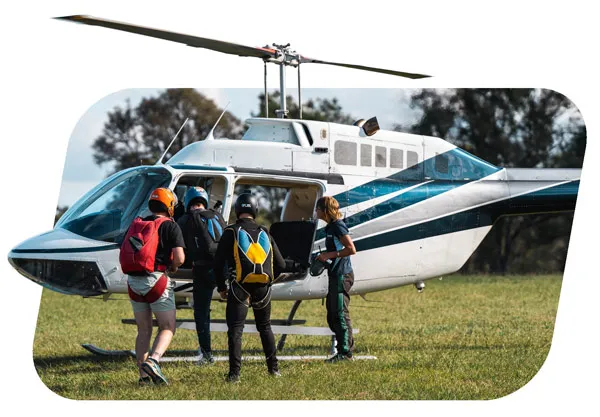
The APF uses a tiered system of skydiving licences:
A-License
Certificate A, or A-Licence, is the first skydiving licence in Australia, with the following requirements:
- Complete the AFF Course
- Pass the A-Licence test.
- Make at least 10 witnessed verified landings within 30m of the target.
Your Certificate A is internationally recognised, allowing you to skydive solo at most skydiving dropzones in Australia and overseas.
Estimated time and cost: it varies based on individual progress. It typically takes between 15 and 25 jumps, with a total cost ranging from $2,900 to $3,800.
B-Rels
This is a table of 8 coached jumps designed to teach students how to fly safely with others. It is a good idea to start your B-rels after AFF, so you can get signed off to fun jump in small groups.
B-License
- 50 skydives.
- Complete the B-Rel table.
- Perform 10 witnessed landings within 25m of the target.
- Gain approval to pack your own main parachute.
- Being able to determine aircraft exit point relative to the ground.
C-License
Certificate C opens up exciting new possibilities for experienced skydivers. This certification allows you to:
- Use a camera during skydives
- Take part in high altitude jumps (above 15,000 feet, using oxygen)
- Skydive in stronger winds up to 25 knots
- Participate in night jumps
To achieve your Certificate C, you must:
- Hold all previous certifications.
- Complete at least 100 skydives.
- Perform 10 witnessed landings within 10m of the target.
These skills and experiences bring you closer to the thrilling world of advanced skydiving.
D-License
With Certificate D you can try Wingsuit flying and be eligible to becoming a Coach.
Requirements:
- Hold all previous certifications.
- At least 200 skydives.
- Perform 20 witnessed landings within 5m of the target.
- Demonstrate competence choosing the right exit point for a group of skydivers.
E-License
At this level, you’ve become a fully-fledged skydiver with comprehensive rights and responsibilities. Certificate E opens the door to new possibilities like Tandem Skydiving Instructor rating, Wingsuit Coach and Demo Skydiver.
Requirements:
- Hold all previous certifications.
- Log a minimum of 500 skydives.
- Perform 20 witnessed landings within 1m of the target.
Skydiving disciplines
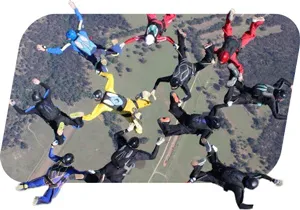
"Belly" or flat flying
Relative flying with a belly-to-earth position, taking docks and making formations.
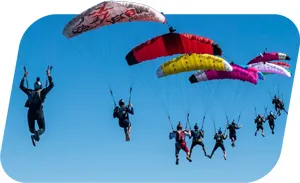
Canopy piloting
More than just a means to get back to the ground: Swooping, CRW, Flocking…
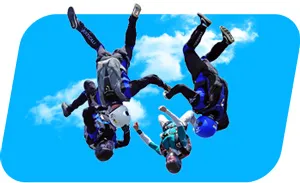
"Vertical" or Freeflying
More advanced discipline, involving vertical flying positions like head down and head up
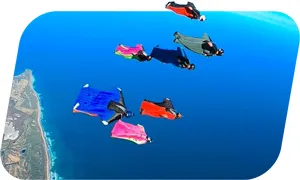
Wingsuit Flying
You can glide through the air at slower descent rate with special suits.
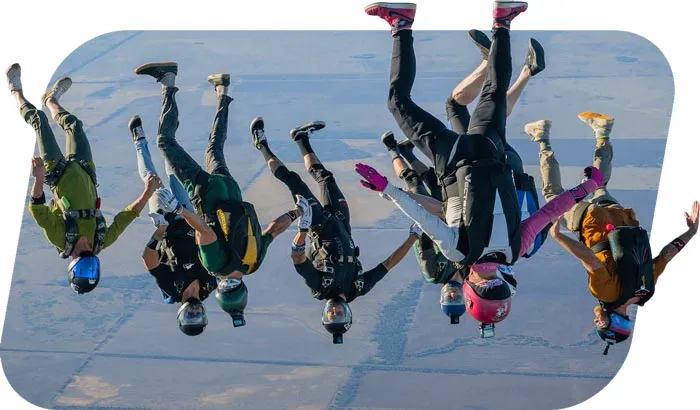
Tracking and Angles
Skydivers move in groups across the sky, at different angles relative to the ground.
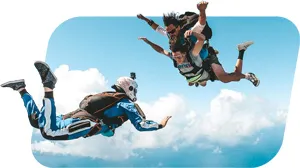
Camera flying
Take your craft to the skies, filming skydivers, students and tandems.
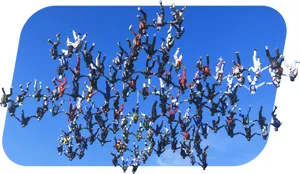
Big ways
This special events require serious training, sometimes involving hundreds of skydivers.
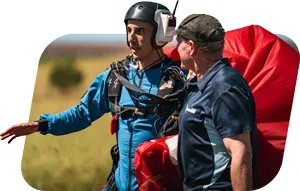
Coaching and instruction
The reward of giving back, as an AFF instructor, Tandem Master or Coach.






